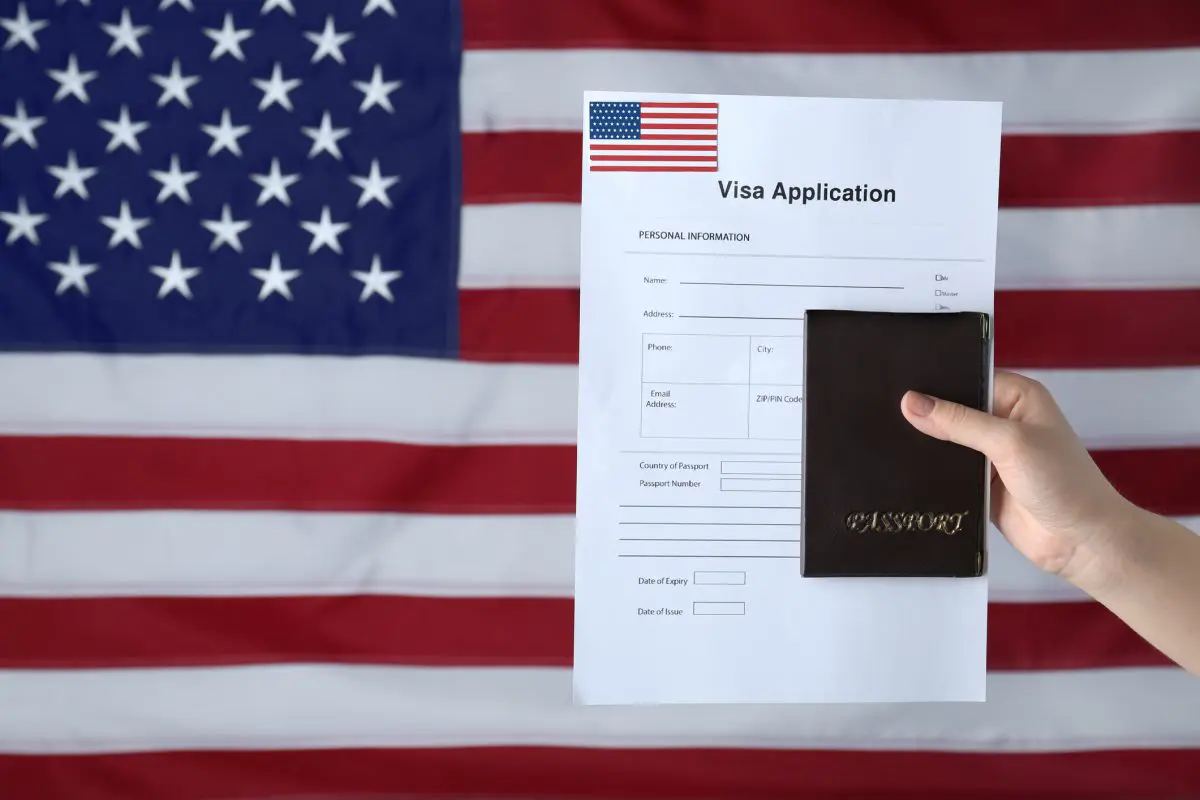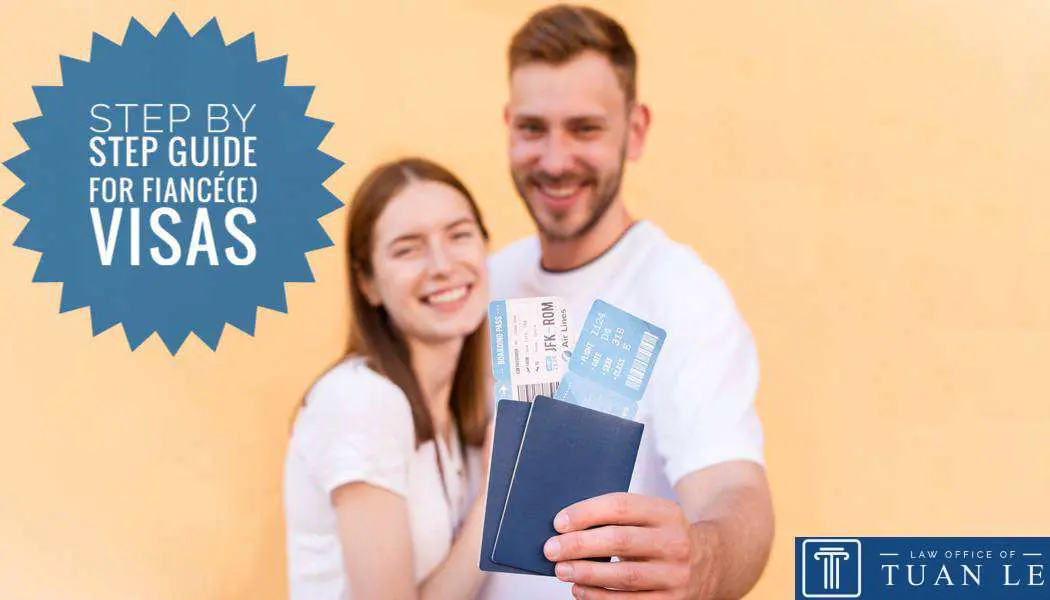Us Immigrant Visas
National Interest Waiver; Everything You Should Know in Simple Words
December 22, 2024
7 min read
Learn about B-1 visa permitted activities and restrictions. Get expert legal advice from Tuan Le Law in Orange, CA.

B-1 Visa Permitted Activities: Understanding the Restrictions Imagine a foreign entrepreneur visiting the United States on a B-1 visa to explore potential business opportunities. During their trip, they receive an unexpected offer to invest in a local startup. While this might seem like a promising opportunity, accepting the investment would violate the terms of their B-1 visa. The entrepreneur faces a difficult decision: pursue the potentially lucrative investment and risk visa complications, or decline the offer and adhere to the visa's restrictions!
This scenario highlights the importance of understanding the B-1 Visa is a non-immigrant visa issued by the U.S. government to individuals seeking to enter the United States temporarily for business purposes. This visa is crucial for facilitating international business relations. It allows foreign nationals to engage in a variety of B-1 visa activities without the need for a more complex work visa. It permIt's temporary stays to conduct specific business activities. However, it's important to understand the precise limitations and restrictions associated with this visa type. For professional legal assistance, contact the Law Office of Tuan Le in Orange County, CA,
This article provides a comprehensive overview of the B-1 visa permitted activities and restrictions. It emphasizes the importance of understanding these limitations to avoid legal issues such as visa revocation and future entry bans. If you find yourself in a challenging situation like the one described, it's crucial to seek professional legal advice to navigate the complexities of B-1 visa regulations. For expert guidance and support, consider reaching out to Tuan Le Law in Orange, CA. Call us at 714-877-5840.
When holding a B-1 visa, it is crucial to understand both the permitted activities and the restrictions associated with this visa type. This knowledge ensures compliance with U.S. immigration laws and helps avoid potential legal issues. The B-1 visa allows for a range of business-related activities, but it also comes with specific limitations.
Several key activities are permitted under a B-1 visa:
Understanding the following criteria is essential for a successful B-1 Visa application. It ensures that applicants are well-prepared and meet all the requirements for their business visit to the United States:
Purpose of Visit: The primary reason for the visit must be business-related. This includes activities like attending B-1 visa business meetings, conferences, or conventions. It also covers consulting with business associates and negotiating contracts.
Temporary Stay: The applicant must intend to stay in the United States for a limited period. They must demonstrate that they have ties to their home country, such as a residence and employment, which they intend to return to after their temporary stay.
Financial Stability: Applicants must show that they have sufficient funds to cover their expenses while in the United States. This includes accommodation, travel, and other living expenses.
Non-Immigrant Intent: The applicant must prove that they do not intend to immigrate to the United States. This can be demonstrated through strong ties to their home country, such as family, property, or a permanent job.
Compliance with U.S. Laws: The applicant must comply with all U.S. immigration laws and regulations. They should not have any criminal record or history of visa violations.
When applying for a B-1 Visa, you will need to provide several important documents:
Preparing for the B-1 Visa interview is crucial for a successful application:
One common misconception is misunderstanding what activities are permitted on a B-1 visa. Many people mistakenly believe that they can engage in any business-related activity, including full-time employment or running a business. However, the B-1 visa strictly limIt's activities to those that do not involve direct employment or active management of a business. For example, while attending B-1 visa business meetings, conventions, or consulting is allowed, taking up a full-time job or managing a business is not.

Another frequent misconception is confusing the B-1 visa with other visa types, such as the H-1B or L-1 visas. The B-1 visa is specifically for temporary business visIt's and does not permit employment or long-term stays. In contrast, the H-1B visa allows for employment in specialized occupations, and the L-1 visa is for intra-company transferees. Understanding the distinct purposes and restrictions of each visa type is crucial to ensure compliance and avoid legal issues.

Violating the terms of a B-1 visa can lead to serious legal repercussions. If a visa holder engages in prohibited activities, such as unauthorized employment or investment, they may face immediate deportation. Additionally, they could be barred from re-entering the United States for a specified period or even permanently. Legal actions may also include fines and other penalties, depending on the severity of the violation.
Violating B-1 visa terms can significantly impact future visa applications. A history of visa violations can lead to increased scrutiny and a higher likelihood of denial for future visa requests. This can affect not only B-1 visa applications but also other visa categories, such as tourist or work visas. The U.S. immigration authorities maintain detailed records, and any past violations can negatively influence their decisions on future applications.

No, the B-1 visa is specifically for business visitors. Family members would need to apply for a B-2 tourist visa if they wish to accompany you.
The length of stay is typically limited to six months, but it can vary based on individual circumstances and the discretion of the immigration officer at the port of entry.
Yes, it is possible to apply for an extension of stay. However, you must provide a valid reason and demonstrate that you still meet the eligibility criteria for the B-1 visa.
If your B-1 visa application is denied, you can reapply. It is important to address the reasons for the denial and provide additional supporting documentation to strengthen your case.
Yes, you can apply to change your status to another visa type while in the U.S. However, this process requires meeting the eligibility criteria for the new visa category and submitting the appropriate application to U.S. Citizenship and Immigration Services (USCIS).
To obtain a B-1 visa, you must demonstrate that you have sufficient financial resources to cover your stay in the United States. This includes showing proof of funds to cover expenses such as accommodation, transportation, and daily living costs. Additionally, you need to provide evidence of strong ties to your home country, ensuring that you intend to return after your business visit.
While there are no specific industries or professions that guarantee approval, applicants from well-established businesses with clear business purposes and strong ties to their home country are generally more likely to be approved.

Navigating the complexities of the B-1 visa can feel like walking a tightrope, but with the right knowledge and guidance, you can stay on solid ground. Understanding the permitted activities and restrictions is crucial for ensuring compliance and avoiding potential legal issues. Legal issues can range from visa revocation and deportation to fines and bans on future entry to the United States. These consequences can have long-lasting impacts on your ability to travel and conduct business internationally. Seeking legal advice is advisable whenever you are unsure about the activities permitted under your B-1 visa or if you encounter any issues during your stay. Don't hesitate to seek professional legal advice. For expert guidance and support, reach out to Tuan Le Law in Orange, CA. Call us at 714-877-5840. Remember, it's better to be safe than sorry when it comes to your visa status.
The information provided on this page or article does not, and is not intended to, constitute legal advice; instead, all information, content, and materials available on this page or article are for general informational purposes only. Information on this page or article may not constitute the most up-to-date legal or other information. Readers of this page or article should contact their attorney to obtain advice with respect to any particular legal matter. No reader, user, or browser of this page or article should act or refrain from acting on the basis of information on this site without first seeking legal advice from counsel in the relevant jurisdiction.
Related Articles

December 22, 2024
7 min read

August 30, 2024
9 min read
.webp&w=3840&q=75)
June 27, 2024
9 min read
Need guidance from an experienced immigration attorney?
Mr. Le has granted you a 30-minute consultation session.